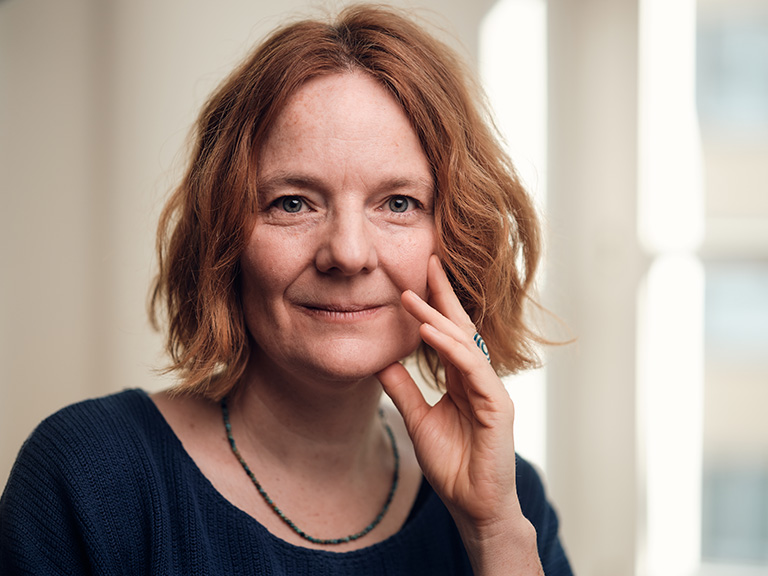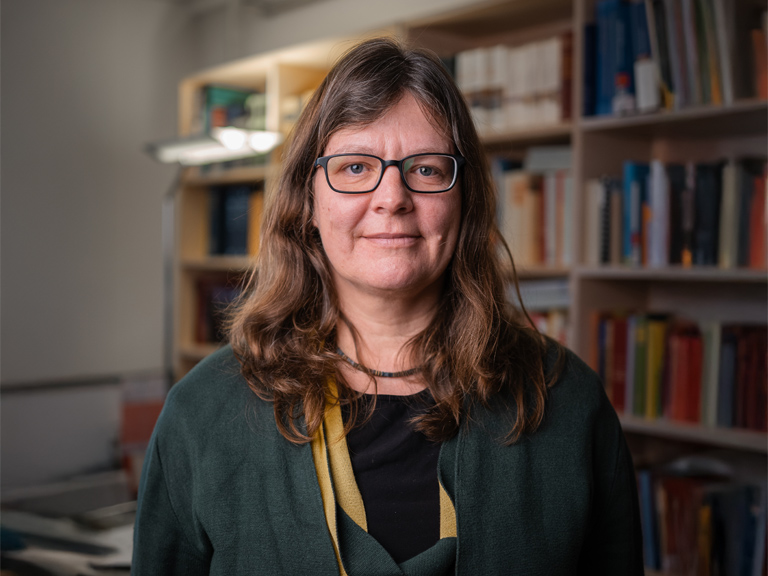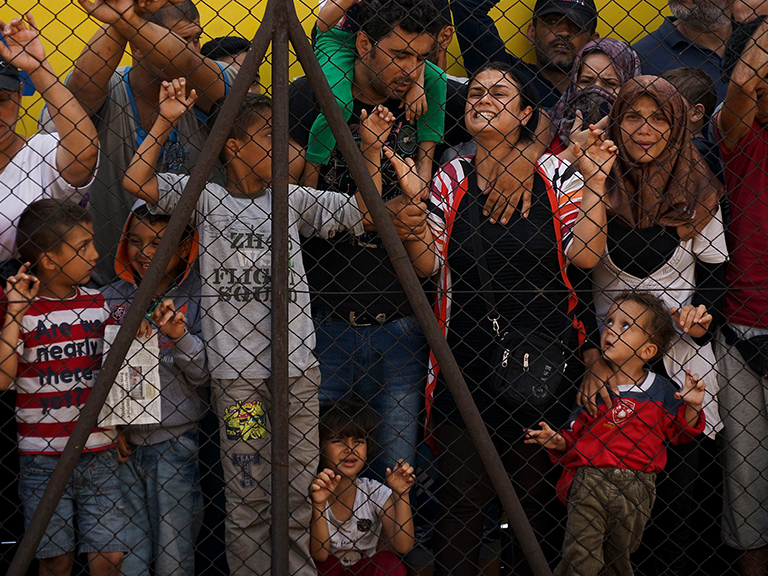Muslim Belonging
Holocaust Memory and Anti-Muslim Racism
In "Subcontractors of Guilt", Esra Özyürek investigates how Holocaust memory culture in Germany is associated with the marginalization of Muslim citizens. In a public discussion with the author and other experts in Bern, the topic was transposed to Switzerland.
In the 1990s, Germany’s coming to terms with its Nazi past found an attentive observer in British-Turkish anthropologist, Esra Özyürek. Now a professor at Cambridge, England, in the preface of her book Subcontractors of Guilt (2023; published in a German translation in March 2025), which received much attention, she says: “My intellectual coming-of-age in the early 1990s in Istanbul intersected with the emergence of a critical mass of intellectuals in Turkey who believed that admitting to the genocidal crimes of [Turkey] [against the Armenian, Alevi and Kurdish minorities] was important [...] I was then and remain now in awe of the time, energy, and commitment private German citizens and public institutions invest in coming to terms with the heinous crimes the Nazis and their supporters committed in the name of the German nation.”
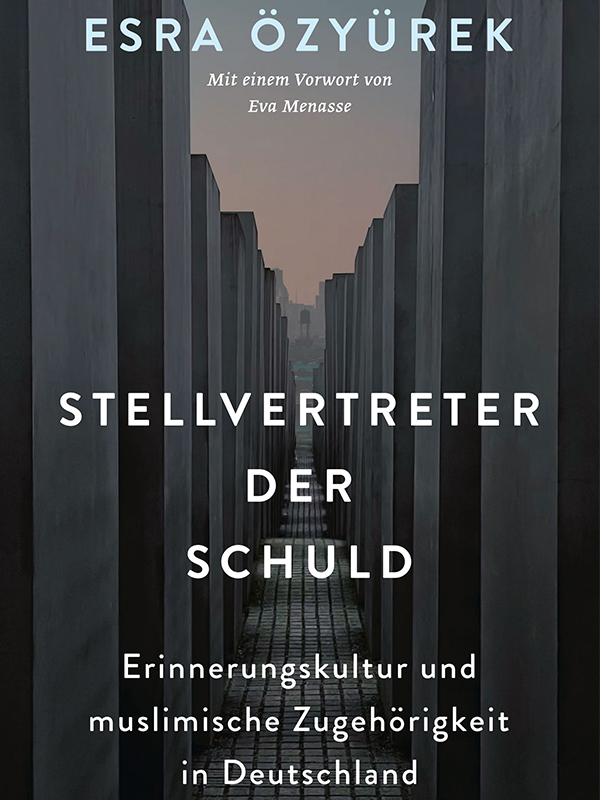
The Unfulfilled Wish to Belong
In Özyürek’s book, based on nearly ten years of fieldwork, her fascination with a critical memory politics is palpable. But there is a remarkable change of perspective: She focuses on the experiences of young Muslim Germans taking part in educational programs about the Holocaust. These came about in the early 2000s, after 9/11, when political concerns about Muslim men becoming radicalized created a new framework for regulating citizenship and belonging in post-migrant Germany.
Taking a stereotypical view of a homogeneous “Muslim” or “Arab culture,” antisemitism was identified as a potential risk to society and a new topic in connection with integration. Since then, using workshops, role play, and excursions to Holocaust memorial sites, young Muslims have been taught to recognize and stave off potential antisemitism in themselves.
In her meticulous ethnographic descriptions, Özyürek makes the dilemmas faced by these young people palpable. An especially striking example is her analysis of a visit to Auschwitz: Whereas, on the eve of the visit, the young people were almost desperately worried whether they would feel and show sufficient empathy for the victims, on the following day, they reported their “successes” with relief: Not only did they feel empathy for Jews, Sinti, Roma, Black people and other minorities. They also drew parallels to their own experiences of exclusion and racism in Germany. However, by feeling empathy as victims of discrimination, they went against the script of the program, according to which they were to identify only as perpetrators, becoming aware of their own antisemitism.
Subcontractors of Guilt documents the deep-seated desire of marginalized and racialized young Muslims to belong to German society – which despite their efforts they may never achieve. In a recent newspaper interview (in taz), Özyürek said: “Every year, Muslims who advocate against antisemitism are awarded the Federal Order of Merit. They are written about in newspapers, they receive funding for trips to Israel, that kind of thing. But, at the same time, many told me: ‘Afterwards, when I drive somewhere, walk the streets, or try to enter a club, all that recognition is gone again.’”
Whose Memory Counts?
Özyürek’s ethnography of Muslims in Germany traces those dilemmas to current contradictions in the Holocaust memory culture and integration policy in Germany. Her analyses, with an ethnographic focus, of political discourses since World War II give rise to a kind of psychoanalysis of Holocaust memory in post-migrant society. How does it negotiate guilt, responsibility, or solidarity? What inclusions and exclusions are the result?
By taking an outsider’s point of view, Subcontractors of Guilt adds to current debates about a changing German memory culture, which author Max Czollek, following Michael Bodemann, recently labeled “reconciliation theater.” According to this, German mainstream society uses symbolic actions to assure itself of “becoming good again”. Jewish actors are cast in the role of victims with whom members of mainstream society have been reconciled. Young Muslims, on the other hand, play the part of unatoned perpetrators on that metaphorical stage, who have yet to redeem themselves. Both Özyürek and Czollek, however, point out that antisemitic criminal offenses in Germany are mostly committed by right-wing, white non-Muslims, and that in the 2025 federal election, a right-wing extremist party won more than 20 percent of the vote – a party whose protagonists call the Holocaust a “speck of bird shit in Germany’s history” and demand a “U-turn in memory politics.”
Özyürek’s research-based ethnography Subcontractors of Guilt supplements the debate with a view of how integration and nationality policies are used to project antisemitism and the burden of Holocaust memory on the Muslim minority. This is not to deny patriarchal, antisemitic or anti-Israel discourses and values in Muslim minorities, but to highlight the racist processes of exclusion active at the same time.

This opens up a view on what memory politics might look like in post-migrant societies. Following the work of Michael Rothberg, professor of Holocaust studies at the University of California, Los Angeles, this would require “multidirectional memory”, integrating the different perspectives of Jewish, Muslim, and other minorities into national history politics, rather than playing them off against each other.
What about Switzerland?
In contrast to Germany, there has been little official Holocaust memory politics in Switzerland. Swiss officialdom only began to process its involvement with the Nazi regime when, in 1996, a class-action lawsuit against the major Swiss banks was launched by Jewish Holocaust victims. 2002 saw the publication of the final report of the Bergier Commission, appointed by the Federal Council in 1996, in which Switzerland officially acknowledged its historical involvement with Nazi Germany. But did this awareness have lasting consequences? No consistent next steps were taken; not in education, nor in memory politics or anti-discrimination work.
A knife attack on an orthodox Jewish man by a radicalized Swiss Muslim in Zurich in March 2024 sparked a debate around “Muslim antisemitism” in Switzerland also. Following the attack, various initiatives against antisemitism were launched at federal, cantonal, and municipal levels. The distinction between antisemitism and legitimate criticism of Israeli policies against the backdrop of international law and human rights has been politically highly charged since October 7, 2023, encouraging undifferentiated narratives of Muslim antisemitism. At the same time, there is little public reporting of how anti-Muslim racism has also increased in Switzerland since then, with e.g. a Muslim father and son having been attacked in Bad Ragaz a few weeks after the Zurich attack.
Revealing the Blind Spots in Swiss Mainstream Society
Against this backdrop, the Institute of Social Anthropology at the University of Bern held a public discussion with Esra Özyürek and other experts on the subject of how Holocaust memory, antisemitism, and anti-Muslim racism in Switzerland are linked. Taking Subcontractors of Guilt as a starting point, the discussion took up the views of minorities on the interplay between antisemitism and anti-Muslim racism and explored approaches to mutually supportive and multidirectional memory.
This was a contribution to a critical and nuanced public debate with a view to revealing the blind spots in Swiss mainstream society regarding antisemitism and anti-Muslim racism while assuming responsibility for the country’s own history.
About the author
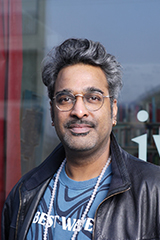
Rohit Jain
Rohit Jain holds a PhD in social anthropology and is a lecturer at the Institute of Social Anthropology and co-director of the Public Anthropology Lab at the University of Bern. His research focuses on migration, postcolonialism, memory politics, and public culture.
Subscribe to the uniAKTUELL newsletter

Discover stories about the research at the University of Bern and the people behind it.
